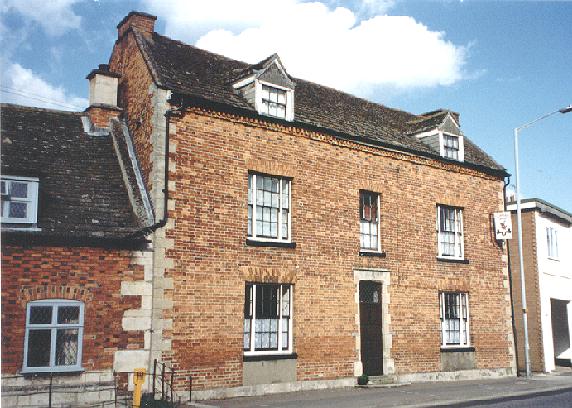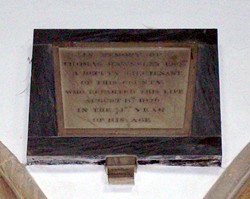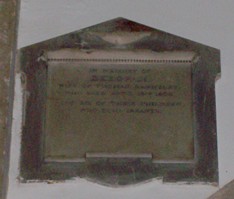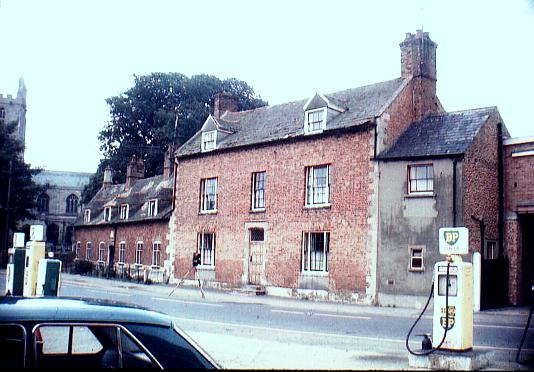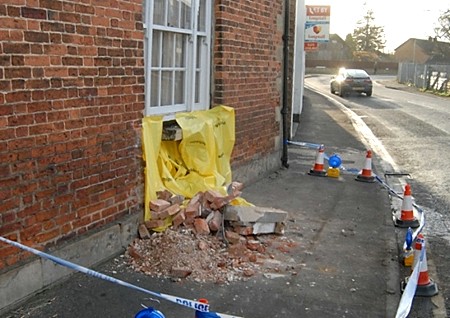|
Cavalry House
This unusual house in South Street is so named because the former owner Mr Thomas Rawnsley (1755-1826), a wool stapler of some means and a Deputy Lieutenant of Lincolnshire, raised at his own expense a volunteer cavalry troop among local residents in the late years of the 18th century when Britain was at war with revolutionary France for national defence against a possible invasion threatened by Napoleon. The troop was one of three mounted units known as the Folkingham and Bourne Cavalry, operating within the Bourne and Folkingham Squadron which was raised in June 1794 under the command of Sir Gilbert Heathcote with his son, Captain Robert Heathcote as second in command. It was the practice of the period for wealthy businessmen to finance military units in times of emergency and as a result of his participation, Rawnsley was gazetted cornet in 1794 and subsequently promoted lieutenant in May 1799. His troop was also known as the Loyal Lincolnshire Light Horse Rangers which was eventually recognised by the War Office as part of its official military strength. By 1803, it consisted of almost 60 officers and men and he had been promoted to captain and appointed both adjutant and paymaster of the Folkingham and Bourne Cavalry and was being paid £146 a year. The volunteers practised military drill regularly on common land in the town and surrounding villages while the emergency lasted but had no chance to display their valour because the invasion never came. In 1808, Rawnsley's service in the cause of national security was recognised when Lady Heathcote presented him with a handsome silver goblet. But by 1816, the unit had been disbanded, along with all other volunteer units which were not revived for more than 30 years. Rawnsley was a member of a well known Lincolnshire family who settled in the county during the 18th century. He was the great-grandfather of Canon H D Rawnsley, author of Memories of the Tennysons, and of W F Rawnsley, who wrote Highways and Byways in Lincolnshire, and owned land in the town and in Thurlby, the Isle of Ely and Norfolk, but chose to live in Bourne where he married a local girl, Deborah Hardwicke, in 1784. Their fifth son was the Rev Thomas Hardwicke Rawnsley (1789-1861) who became rector of Folkingham, and another of their sons, Charles Rawnsley, a graduate of Emmanuel College, Oxford, died in July 1811 at Futtergurgh in the East Indies while serving as a lieutenant with the 18th Regiment of Native Infantry. Thomas Rawnsley died in 1826, aged 71, and there are memorial tablets in the north arcade of the Abbey Church to him, his wife and six of their children who died in infancy.
The Abbott's Garden once formed part of the picturesque grounds of Cavalry House but this land has since been sold for development although in past times, it was the venue for many public events, such as garden parties and concerts, through the generosity of a former owner, Mr Albert Dainty. A typical occasion was a promenade concert on Wednesday 21st June 1899 to raise funds for the Volunteer Corps when the gardens were illuminated and there was dancing late into the night.
See also The Napoleonic Wars The Bourne Volunteers Albert Dainty
Go to: Main Index |
|||||||||||
